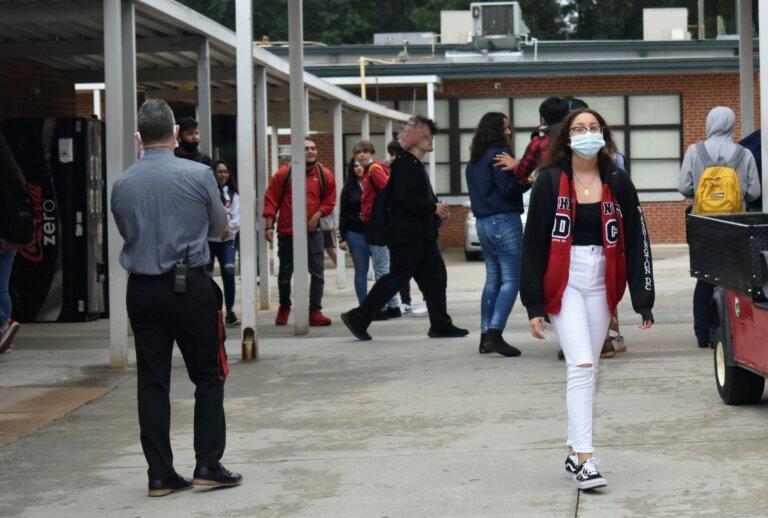
Caption
Students walk to class at Forsyth Central High School in August, 2020. The Georgia Board of Education is set to consider a proposal condemning the teaching of critical race theory in Georgia classrooms.
Credit: Ross Williams/Georgia Recorder

